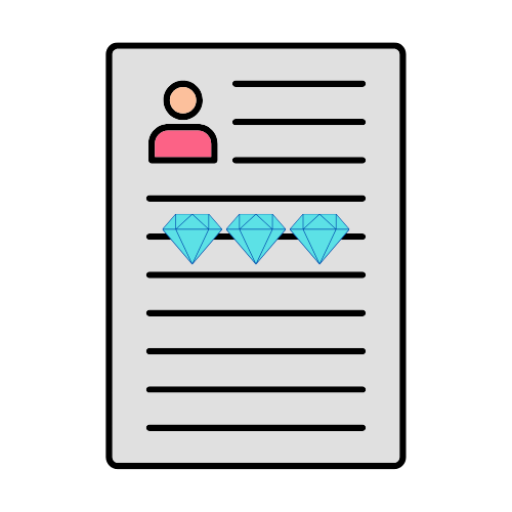A Business Development Manager (BDM) focuses on finding and pursuing new opportunities to help the company grow. They build and maintain relationships with clients, research market trends, and create plans to expand the business. BDMs work closely with sales, marketing, and product teams to ensure everyone is aligned and working towards the same goals. Their role is essential in shaping the company’s future by identifying potential partnerships and negotiating deals that benefit both the company and its clients.
However, before you can land the role, you’ll need to excel in the interview process. To help you prepare, we’ve compiled 10 essential interview questions for a Business Development Manager position. We’ve also included sample answers to some of the most critical questions, giving you valuable insights to craft your own compelling responses.
Interview Questions for a Business Development Manager
- Can you describe a successful business development strategy you implemented and its results?
- How do you identify and evaluate potential business opportunities?
- Tell me about a time you successfully negotiated a significant deal. What was your approach?
- How do you build and maintain relationships with clients and partners?
- What methods do you use to stay updated on industry trends and market changes?
- How do you prioritize and manage multiple business development initiatives simultaneously?
- Describe a challenging situation with a client and how you resolved it.
- How do you collaborate with internal teams to drive business development initiatives?
- What metrics do you use to measure the success of your business development efforts?
- How would you approach entering a new market or launching a new product?
Sample Answers for the Top 4 Interview Questions
Can you describe a successful business development strategy you implemented and its results?
What they’re looking for:
Interviewers ask this question to assess your practical experience in developing and executing successful business strategies. They want to understand your strategic thinking, ability to implement plans, and capacity to measure and communicate results. This question also allows them to gauge your impact in previous roles.
Sample response:
In my previous role, I identified an opportunity to expand our services into the healthcare sector. After conducting thorough market research and competitor analysis, I developed a strategy to target mid-sized hospitals with our specialized software solutions. I led a cross-functional team to create tailored marketing materials and organized industry-specific webinars to showcase our expertise. As a result of this strategy, we secured contracts with five major hospitals within six months, increasing our revenue by 22% and establishing a strong foothold in the healthcare market.
Tips for Tailoring Your Response:
When crafting your answer, focus on a specific, measurable strategy that you personally drove from conception to completion. Highlight the steps you took, challenges you overcame, and quantifiable results you achieved. Be prepared to discuss how this experience relates to the potential challenges and opportunities in the role you’re interviewing for.
How do you identify and evaluate potential business opportunities?
What they’re looking for:
Interviewers ask this question to assess your strategic thinking, market analysis skills, and ability to recognize profitable ventures. They want to understand your methodology for identifying opportunities and your criteria for evaluating their potential. This question also reveals your proactivity and ability to align opportunities with organizational goals.
Sample response:
In my previous role, I developed a systematic approach to identify and evaluate business opportunities. Situation: Our company was looking to expand into new markets. Task: I was responsible for identifying and assessing potential opportunities. Action: I conducted thorough market research, analyzed industry trends, and leveraged our CRM data to identify underserved customer segments. I then created a evaluation matrix that considered factors such as market size, competition, potential ROI, and alignment with our company’s strengths. Result: This approach led to the successful expansion into two new market segments, resulting in a 15% increase in revenue within the first year.
Tips for Tailoring Your Response:
When crafting your answer, focus on a specific methodology you’ve used successfully in the past. Highlight any unique approaches or tools you employ in your evaluation process. Be prepared to discuss how you balance quantitative data with qualitative insights, and how you adapt your evaluation criteria to different types of opportunities or industries.
Tell me about a time you successfully negotiated a significant deal. What was your approach?
What they’re looking for:
Interviewers ask this question to assess your negotiation skills, strategic thinking, and ability to close high-value deals. They want to understand your approach to complex negotiations, how you handle pressure, and your ability to create win-win situations. This question also reveals your communication skills and your capacity to build relationships during high-stakes discussions.
Sample response:
Situation: In my previous role, we were pursuing a $5 million contract with a Fortune 500 company, which would have been our largest client to date. Task: I was responsible for leading the negotiation process and securing the deal. Action: I began by thoroughly researching the client’s needs and pain points, then developed a tailored proposal that addressed their specific challenges. During negotiations, I focused on building a strong relationship with key decision-makers, actively listening to their concerns, and proposing creative solutions. I also leveraged our unique value propositions and demonstrated flexibility in contract terms. Result: After three months of negotiations, we successfully closed the deal, exceeding our initial revenue target by 20% and establishing a long-term partnership with the client.
Tips for Tailoring Your Response:
When crafting your answer, focus on a specific, high-stakes negotiation that showcases your skills and approach. Highlight the strategies you used, any obstacles you overcame, and the tangible results you achieved. Be prepared to discuss how you adapt your negotiation style to different situations and types of clients, and how you balance achieving your goals with maintaining positive relationships.
How do you build and maintain relationships with clients and partners?
What they’re looking for:
Interviewers ask this question to assess your interpersonal skills, relationship management abilities, and long-term strategic thinking. They want to understand your approach to nurturing professional relationships and how you add value beyond just making sales. This question also reveals your communication style and your ability to build trust with key stakeholders.
Sample response:
Situation: In my current role, I was tasked with improving our client retention rate, which had been declining. Task: My goal was to develop and implement a strategy to strengthen relationships with existing clients and partners. Action: I implemented a multi-faceted approach that included regular check-ins, personalized communication, and value-added services. I created a quarterly business review process to discuss clients’ evolving needs and proactively offer solutions. Additionally, I organized industry-specific networking events that brought together clients and partners, fostering a sense of community. Result: This approach led to a 25% increase in client retention over 18 months and generated several new partnership opportunities through referrals.
Tips for Tailoring Your Response:
When answering, share real examples of how you’ve connected with clients or partners. Maybe you used social media to stay in touch, or set up regular video calls to check in. Show that you get what different clients want – like how some prefer quick texts while others like detailed emails. Be ready to talk about how you juggle being friendly with hitting your targets. For instance, you might mention how you track things like repeat business or client feedback to see if your relationship-building is working.




